It is not happiness that makes us grateful. It is gratefulness that makes us happy.
—Brother David Seindl-Rast
In an effort to tackle my Covid blues, which have intensified at the prospect of another solo holiday, I was drawn to the concept that a gratitude practice could make me happier.
As I plunged into the gratitude literature, I discovered numerous writers and thinkers who make gratitude a daily ritual. Mary Pipher, author of Women Rowing North, writes:
Gratitude is a life skill that can be improved with practice. Even during the toughest trials, we can learn to find things to enjoy and appreciate.
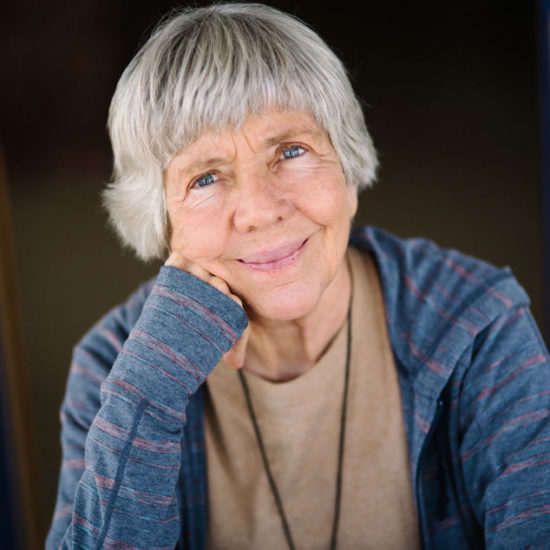
Mary Pipher, author of “Women Rowing North”
Pipher got my attention, but she didn’t offer a lot of pointers on what makes for a gratitude practice. Consulting Kristi Nelson’s new book, Wake up Grateful, I found more clarity.
Nelson brakes down her gratitude practice into the simple formula of “Stop, Look, Go,” drawing an analogy to how we teach children to cross the street. I found this a little hokey, but read on. This practice boils down to pausing when feeling blue, getting quiet and meditating. The “Look” part instructs one to reflect on something you feel grateful for at that moment. “Go” invites you to go forward with a greater sense of well-being.
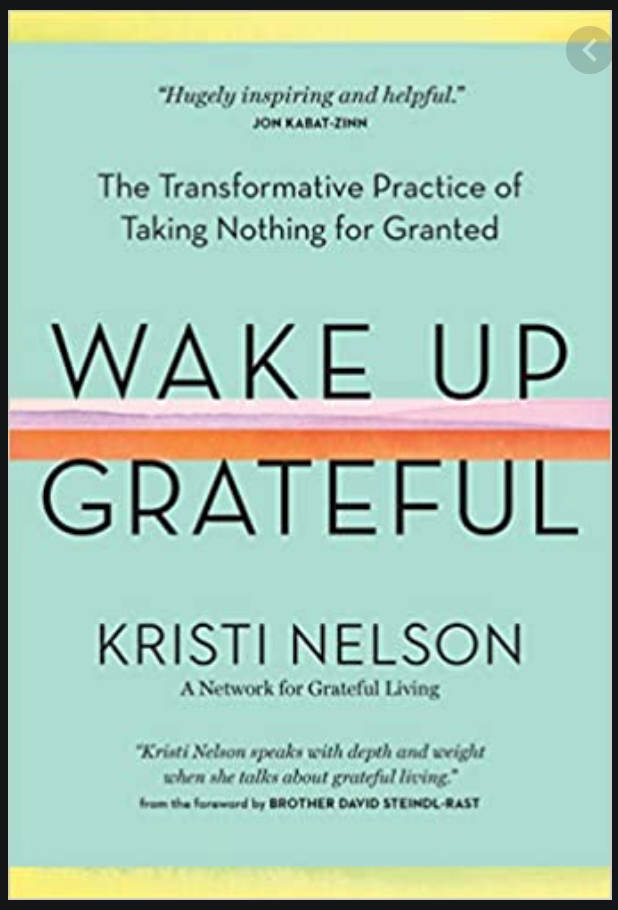
Additional tools that can help keep gratitude front and center are starting each day with gratitude, like announcing three things you’re grateful for before jumping out of bed, and keeping a gratitude journal. Even if it’s just one page a day or several times a week, it can make a big difference.

Keeping a gratitude journal can reinforce habits of gratitude
I draw inspiration from people in my life who always seem to handle hardships with gratitude.
My 75 year-old brother, frail with only so-so health, had to quarantine after being exposed to Covid. In a phone call I commiserated with him, but because he’s unrelentingly positive, he responded, “It wasn’t bad at all. Friends left groceries outside my front door. I had loads of books and movies to stream.”
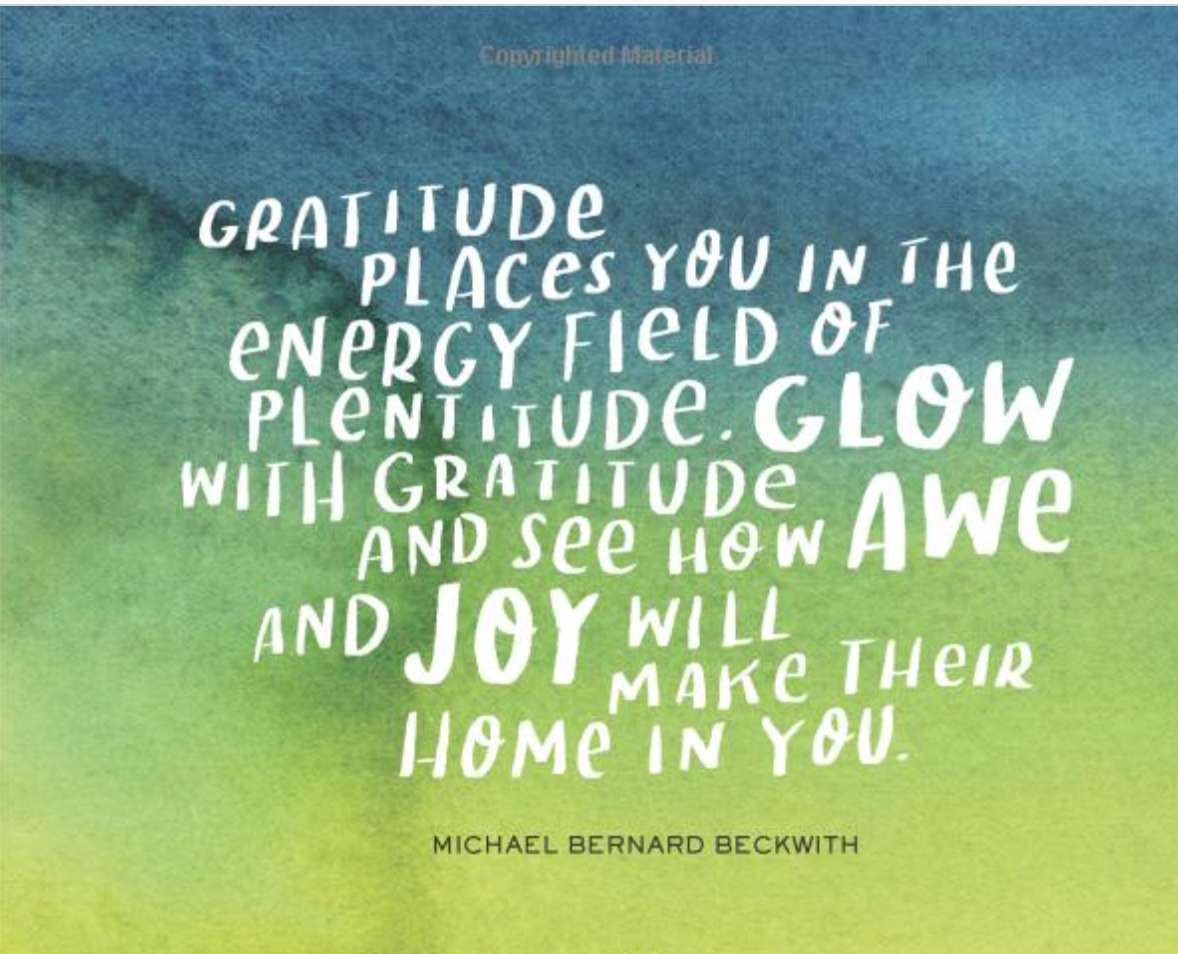
My sister-in-law went into assisted living last spring when the lockdown started. She had to remain in her small room for 14 days with meals left at her door. She’s endured subsequent lockdowns due to new Covid infections in her residence. When we talk, she expresses gratitude for what she has rather than what she gave up. Her treasured piano remains with her along with favorite paintings and family photos. However, her rebellious spirit is alive. She was forced into quarantine on two occasions after breaking a house rule of going outside to sit with visitors.
Gratitude is often prevalent when one is dying and life is fragile. Oliver Sachs wrote his book, Gratitude as he was dying. The blogger, Ronni Bennett, chronicled her dying from cancer in her blog, “Time Goes By,” where she admitted dying was scary, while expressing gratitude for small blessings, like a day with good energy, or for friends who visited and cared for her.
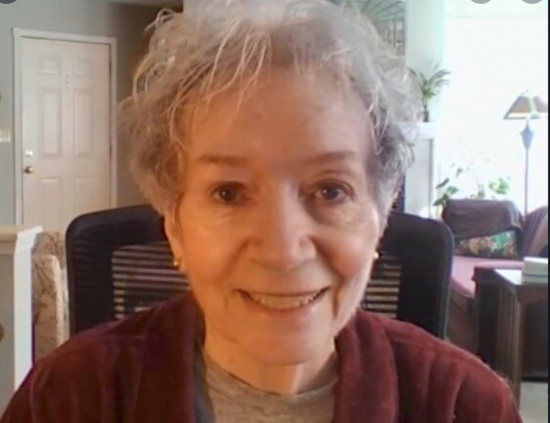
One of the last images of herself that Ronni posted prior to her death on Nov. 3, 2020
As citizens of the world it’s not enough to be grateful for our surroundings, but to do our part to make the world a kinder, more just place so we can grow in gratitude. We are called to help the homeless and migrants in custody, or to join with others to support a Green New Deal.
For inspiration in embracing gratitude, bookmark Nina Simone singing, “I got no money . . . I got my hair . . . “ After a long list of what she doesn’t have, she switches to what she has, belting out gratitude for things we take for granted, like “my hair, my eyes . . . “
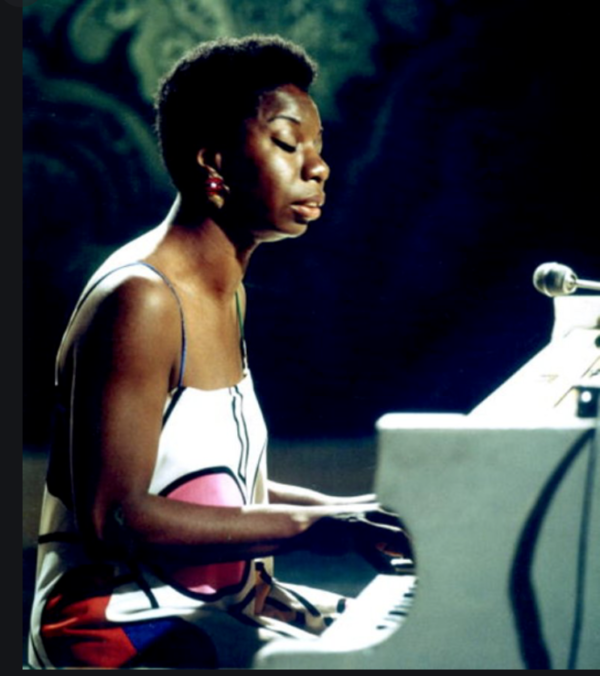
The one and only Nina Simone





